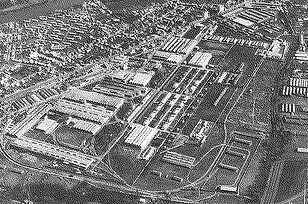justice-driven urbanism for sustainable transitions
We are JUST.
JUST explores how cities and landscapes can co-evolve in the face of climate change and other socio-environmental challenges. At the heart of this work is environmental justice, rooted in the belief that transitions must be fair, inclusive, and grounded in the needs of communities.
From there, we look to the future: shaping resilient and healthy environments that can adapt to change, celebrating the expression of the landscape as a cultural and ecological resource, and strengthening network synergies between natural and human systems. These four themes guide every project we take on.
To add act on our mission, we offer four types of services. Through planning consultancy, we advise authorities and organizations on shaping sustainable development. Our policy and people work ensures that participation and co-creation are embedded in decision-making.
With spatial data applications, we use geospatial modeling and ecosystem services to reveal connections and inform action. Action in the form of landscape urbanism builds on the power of design to synthesize and become more than its combined intentions.
For this, we rely on our diverse and skillful team. Bringing together expertise in planning, ecology, data, design, visual storytelling, and co-creation, we collaborate with public authorities, citizens, and businesses to create environments that are not just planned, but lived—interwoven systems where equity and resilience go hand in hand.
+ more
Matters of concern:
At JUST, we organize our activities around four emblematic challenges for today’s and tomorrow’s society.
They constitute the basis of our contribution to the sustainable development of communities and environments.
matter /ˈmatə/
mater (latin) mother
materia (latin) substance
verb :
• to be of importance : signify
noun :
• a subject under consideration;
• the subject or substance of a discourse;
• problem, diffuiculty. ‘What’s the matter?’
• a source especially of feeling or emotion;
Title reference: Latour, Bruno. Why Has Critique Run out of Steam? From Matters of Fact to Matters of Concern. Critical Inquiry, Vol. 30, No. 2 (Winter 2004), pp. 225–248.

Environmental justice
Striving for healthy and just environments

Climate resilience
The habitat of the future
is resilient

Landscape narratives
Spatial and ecological coherence across territories

Network synergies
Landscape as a
binding factor
What we do —
We provide four types of services to public and private clients, supporting their needs while advancing sustainable development and addressing the key challenges facing communities and the environment.

Spatial data applications
We develop advanced spatial tools to analyze environments, assess the impacts of planned interventions, and incorporate these tools into our everyday work.

Landscape urbanism
We plan and design open space while considering climate change and social needs, using natural processes to create healthier, more resilient, and adaptable environments.

Policy and people
We collaborate with local authorities, experts, and communities to ensure planning decisions are informed by shared goals, local knowledge, and participatory processes.

Planning consultancy
We provide expertise in planning, scenario analysis, and policy support to guide urban systems toward greater adaptability, resilience, and sustainable management.







